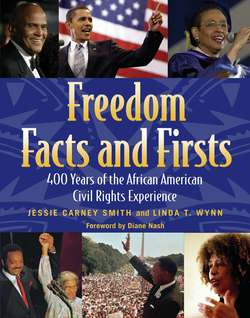Читать книгу Freedom Facts and Firsts - Jessie Carney Smith - Страница 111
На сайте Литреса книга снята с продажи.
War on Poverty (est. 1964)
ОглавлениеOn January 8, 1964, President Lyndon B. Johnson declared a “War On Poverty” during his State of the Union Address. In that address he called for the creation of a “Great Society.” Johnson proposed an expansion in the federal government’s role in domestic policy. During his administration, Congress enacted the Civil Rights Act of 1964 and the Voting Rights Act of 1965, both of which were major civil rights acts. Succeeding to the presidency after the assassination of President John F. Kennedy, Johnson made poverty a national concern. His sensitivity to the issue, despite his personal wealth, rose with a growing national concern that was stimulated in part by Michael Harrington’s now classic tome The Other Americans: Poverty in the United States (1962). Harrington detailed the deplorable living conditions for millions of Americans suffering in desperate poverty in the midst of the world’s most affluent society. The destitute were everywhere, from decaying urban cities to rural areas such as Appalachia. More than one out of five Americans lived below the official poverty line and 70 percent of them were white.
Those who argued for a return to a homeland, nationalists, and separatists believed that there could be no equal treatment for men of color.
As a part of his Great Society Program, which was part of the administration’s domestic policy, Johnson envisioned a federally directed application of resources that extended beyond social welfare to include education and healthcare. The Great Society programs were reminiscent of Franklin D. Roosevelt’s New Deal program of the 1930s. Johnson and Congress passed several measures aimed at alleviating poverty. They increased the availability of money and food stamps through the Aid to Families with Dependent Children, raised Social Security benefits to senior Americans, and focused on improving educational opportunities. Along with the civil rights acts of 1964 and 1965, Congress passed the Economic Opportunity Act (1964) and two education acts (1965). In addition, legislation was passed that created the Job Corps, Operation Head Start, Volunteers in Service to America (VISTA), Medicaid, and Medicare.
The most effective measures of the War on Poverty provided federal funds for the education of children in low-income families through Title I of the Elementary and Secondary Education Act of 1965; Medicare for the nation’s senior citizens; and Medicaid for individuals on welfare, which was created by the Social Security Amendments of 1965. Although the Great Society programs made significant contributions to the protection of civil rights and the expansion of social programs, critics increasingly complained that the antipoverty programs were ineffective and wasteful. The economic and political costs of the Vietnam War, as well as the cost of the programs themselves, surmounted President Johnson’s domestic initiatives. During the second term of President Richard Nixon, Congress replaced the Office of Economic Opportunity with the Community Services Administration and hastened the process in which favored parts of the antipoverty program were exported to established executive agencies, such as the Department of Health, Education, and Welfare. In 1981, President Ronald Reagan abolished the Community Services Administration, leaving only individual programs, such as legal services and Head Start, as the bureaucratic survivors of the War on Poverty.
Linda T. Wynn
